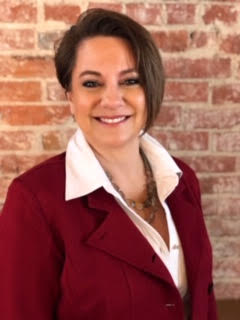Bellingham, Wash. is not a town that many people have heard of. When someone from Bellingham is asked where they’re from by someone outside of Washington state, it’s usually easier to just say “Seattle” than to walk them through a geography lesson detailing the most northwestern corner of the Pacific Northwest.

Situated roughly twenty miles south of the Canadian border and about 80 miles north of Seattle, Bellingham is a medium-sized college town – home to Western Washington University – with a large rural surrounding, and growing promise in the reverse mortgage space due to Washington state’s increasing popularity as a retirement destination.
For Brandi Braley, loan officer at Bellingham’s Neighborhood Mortgage, her journey toward the origination of reverse mortgages began from a starting position in the traditional, forward mortgage space.
In the second edition of our Q&A “Origins” series, Brandi shares how her hiring at Neighborhood Mortgage as a forward mortgage loan officer rather quickly took her into an unexpected direction.
How long have you been originating for?
I have been originating for just over two years, and have been doing reverse mortgages for just over a year-and-a-half.
How did you first learn about the reverse mortgage product, and what led to your initial realization that reverse origination was something you could do?
We had a reverse mortgage specialist in the office who wanted to retire. So, when I came on to the team, he approached me about training with him so he could begin his transition into retirement. I had originally been hired to do forward mortgages, and until he explained the program to me it had never crossed my mind that this was something I would end up doing.
I felt that there were people out there that really needed help to keep their homes and find financial stability.
What would you say was your earliest big test you found most challenging in your career as an originator?
My first client felt that he was losing control, and felt guilty about the fact that he was doing a reverse mortgage. He knew he needed to do it to ensure his wife was financially set if anything happened to him, but the guilt was overwhelming him. He would call daily, even multiple times a day, upset.
We would just talk about it, and I would walk him through the process until he calmed down. The day we signed, he hugged me and thanked me for all I had done for them.
What is your most unusual case that you’ve had to deal with in your capacity as an originator, and how did you solve it?
So far, I think my most unusual loan has been that first one. The husband was very emotional and, as I said, he would call multiple times a day. If he was worked up, I would spend as much time as he needed to help him understand the process of the reverse mortgage, and why we were asking for the things we asked for.
I learned that patience was needed in situations like this, and to let them tell their story. They need to feel in control.
What would you classify as your biggest accomplishment in your work as a reverse mortgage originator?
My clients are always so grateful when we are finished with their loans. They feel a sense of relief, and know that they can stay in their homes and not feel the financial burden that they had been carrying. I am always complimented on my level of knowledge and my ability to keep everyone informed, and to be able to explain things in a way that they can understand.
What do you think is needed for potential borrowers to be more fully educated about home equity release?
I think it’s important to educate financial planners, attorneys and other lenders who do not do reverse mortgages. They need to be able to detect when they see someone who is in need of a reverse mortgage and help direct them to someone who can assist.
Where do you see the reverse mortgage industry in 5-10 years?
I see it growing! People are becoming more familiar with the reverse mortgage program and are comfortable with the concept. I see people using this program as a tool to help them through their retirement years. Additionally, you will always have people who have run into difficult times and find that this is the only way for them to be able to stay in their homes, or to help pay for expenses that they did not see coming.
What is the industry’s biggest challenge today, and how can it be overcome?
I think the industry’s biggest challenge today is still lack of education. If people really understood how this all worked, then they would be open to using it. I run into people who still tell me that they don’t want to give their home to the bank.
If given the opportunity, I try to find an opening to explain how the reverse mortgage works. Sometimes I can change people’s opinions if given the chance.
Complete the sentence: If I could change one thing about the reverse mortgage it would be: __________
Drop the second appraisal.
If I could erase one reverse mortgage misconception it would be: __________
The bank does not own your home! The lender is only on title as the lender, the home is still yours!





